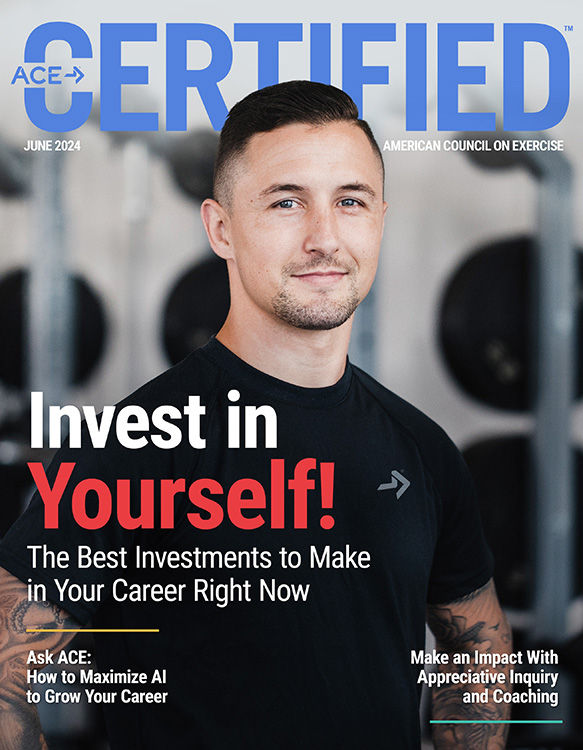
What is the #1 career investment that health coaches and exercise professionals should make now to thrive in the future? That is the question we posed to a group of industry veterans and the responses were eye opening. Ideas range from digital literacy and the ethical use of technology to preparing to train the next generation by studying exercise psychology and how living through a pandemic has shifted their view of wellness. Other suggestions include attending conferences outside the fitness industry to gain a new perspective on things like obesity and health, and exploring your personal biases and using any newfound understanding to shift your mindset when serving others.
As a bonus, long-time ACE employee Chris Gagliardi, MS, shares a personal reflection exercise that will help you identify career investments that align with your goals and values and empower you to reach your ultimate career goals, whatever those may be.
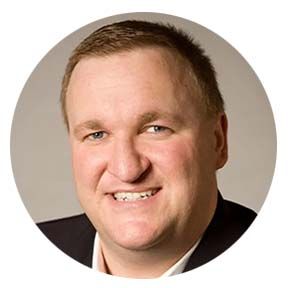
Ted Vickey, PhD, is the founder and CEO of Fitwell, LLC, a fitness and wellness disruptive health technology company serving clients worldwide. Dr. Vickey is a professor of kinesiology at Point Loma Nazarene University, University of San Francisco and Tulane University, and a member of the ACE Scientific Advisory Panel.
ACE: What are some specific continuing education courses or areas of study that you think health coaches and exercise professionals should focus on as they prepare for a future impacted by artificial intelligence and other emerging technology? What do you see as the #1 career investment that professionals should make now to thrive in that future?
Ted Vickey: In the dynamic landscape of health coaching and exercise science, the impending integration of artificial intelligence (AI) and emerging technologies heralds a disruptive and transformative era. For professionals in these fields, staying abreast of technological advancements is as crucial as mastering foundational scientific knowledge. A forward-looking curriculum that includes digital health applications, data analytics and ethical AI use can equip professionals with the tools to leverage technology effectively. Professionals can enhance personalized coaching and client engagement by understanding how to integrate wearable tech, fitness apps and virtual platforms, ensuring they remain at the forefront of their discipline.
But if I had to pinpoint the #1 career investment for professionals in this field, it would be to develop a strong foundation in digital literacy and ethical technology use. This encompasses not just the ability to use technology, but also the ability to do so in a way that enhances the client's well-being, ensures data privacy and promotes inclusivity. As health coaches and exercise professionals, we aim to empower our clients to achieve their health and fitness objectives. In a future shaped by AI and technology, being adept at integrating these tools into our practice responsibly will set us apart and enable us to provide unparalleled value to those we have the honor to serve.
ACE: What is the practical application of the knowledge they would gain from that education?
Ted Vickey: When we dive into the realm of AI and technology knowledge within the health coaching and exercise science professions, we're embarking on a journey that stretches well beyond the conventional boundaries of fitness and wellness. Imagine holding the compass to navigate the vast ocean of digital health innovation. This education is not merely about grasping the mechanics of wearable tech or understanding the algorithms behind health apps; it's about leveraging these tools to enhance human health, performance and well-being in ways we've only begun to explore. You’re being equipped to transform passive health monitoring into active, personalized wellness journeys and turn data into actionable insights that can revolutionize the way we approach fitness, nutrition and mental health.
Now, envision the real-world applications of this cutting-edge knowledge. With a deep understanding of AI and technology, you’d be perfectly positioned to lead the charge in integrating smart technology into holistic health strategies. Whether it’s developing programs that use AI to tailor fitness plans to an individual's unique physiology, employing data analytics to optimize recovery and prevent injury, or harnessing wearable tech to monitor and motivate clients on their wellness journey, your role is pivotal. This education enables you to not only advance your career, but also to be at the forefront of a movement that redefines health coaching and exercise science. In this rapidly evolving landscape, you’re not just adapting; you’re setting the pace, empowering individuals to achieve their highest potential for health and performance.
ACE: Your expertise and experience extend far beyond the topic of technology. Are there any other career investments that health coaches and exercise professionals should make to set themselves up for long-term success, whether that’s other continuing education courses, equipment investments or fitness-related experiences like trips or workshops?
Ted Vickey: In the realm of health coaching and exercise science, there’s an often overlooked but fundamentally crucial aspect: business acumen. Recognizing the importance of understanding business operations, even for those not aspiring to own a business, is pivotal. Familiarity with financial documents, such as balance sheets, crafting a comprehensive business plan, or strategically planning a quarter’s worth of social media content, is indispensable. This knowledge is not just about entrepreneurial ambitions; it's about enhancing one’s versatility and value within the fitness industry.
Building a robust network underscores this professional journey. The adage “Your network creates your net worth” rings particularly true in our field, emphasizing the power of connections not just in quantity but in quality. These relationships can offer invaluable insights, open up new opportunities and support you through triumphs and trials.
Equally critical is the realization that we are not infallible superheroes. Acknowledging the need for advice and support leads to forming your own personal “Board of Advisors.” This select group, ideally no more than three trusted individuals, becomes a cornerstone for making informed decisions. Whether it’s navigating the intricacies of business strategy, evaluating potential investments or enhancing professional development, their guidance is instrumental. Thus, understanding the business side of fitness, complemented by a strong support network, is essential for anyone looking to thrive in the dynamic landscape of health coaching and exercise science.
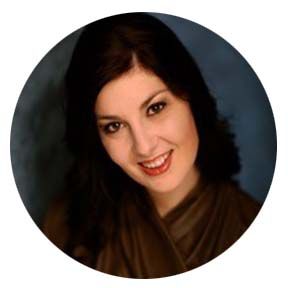
Renee Rogers, PhD, FACSM, is senior scientist of physical activity and weight management at the University of Kansas Medical Center and coauthor of the peer-reviewed article entitled Physical Activity in the New Era of Antiobesity Medications.
ACE: What are some specific continuing education courses or areas of study that you think health coaches and exercise professionals should focus on as they prepare for a future impacted by weight-loss drugs like Ozempic, Wegovy and Mounjaro? What do you see as the #1 career investment that professionals should make now to thrive in that future?
Renee Rogers: It is really hard to think about what the #1 investment would be because obesity is a complex disease. As exercise professionals and health coaches, we have to remember that managing obesity should not be oversimplified to thinking about it only from the standpoint of calories in and calories out. There are biological, behavioral and environmental contributors to obesity, and while exercising and being physically active have important physiological value for all persons, it is only one component of obesity treatment and management.
One of the most valuable steps I took in my career as an exercise physiologist was attending more medical-based conferences where the focus of the training was obesity research and care (not only exercise-focused conferences). Here is where I learned about the medical management of obesity, which includes current and developing pharmacotherapies, metabolic/weight-loss surgeries and what comprehensive obesity care should look like. These conferences also include information on dietary, behavioral and policy considerations as they relate to obesity treatment. While much of what I learn is likely outside the scope of what I am professionally permitted to do, learning about all the different contributors and treatments of obesity has allowed me to better understand the disease to appropriately program exercise. This has allowed me to work on comprehensive care and research teams throughout my career and become a trusted colleague with physicians and providers, dietitians and behavioral psychologists.
Bottom line: Understanding the causes, contributors and physiological mechanisms of obesity-related metabolic dysfunction and treatment will make it easier to not only keep up with the ever-changing pharmacotherapy landscape (by the way, there are now over 100 [substances or compounds] in research and development), but also to be a collaborator on obesity care teams.
ACE: What is the practical application of the knowledge they would gain from that education?
Renee Rogers: As you start to learn the multifaceted approaches to obesity treatment, it will no doubt be overwhelming and, as mentioned above, a lot of what you will learn will be outside of your scope of practice; however, stepping outside of the “exercise/health coaching continuing education”–only strategy will help you become a better advocate for persons with obesity. This is critical and can be eye-opening, especially if you start to examine any weight-related biases you may have. When we only stay in our areas of expertise, our lens can become very narrow in terms of understanding what works and what doesn’t. The reality is that there is not one perfect modality or exercise program for every person with obesity. Our biases should not be overlaid onto our clients.
Understanding obesity as a disease and its contributors helps you see it as being a complicated disease beyond what exercise alone can likely resolve or manage long-term. However, it is truly important that exercise/physical activity remain a part of the treatment strategy—but it cannot be a one-size-fits-all approach. Being an advocate means understanding that every client with obesity comes to exercise with different physical needs, behavioral considerations, and their own perceptions and potential internalized stigma. By understanding this, you will find yourself programming in a way that puts the person first, not overlaying a particular exercise program or method onto a client. This type of education will also help you recognize when to refer your clients with obesity to other specialists as needed, putting their best interest first.
ACE: Your expertise and experience extend far beyond the topic of weight-loss drugs. Are there any other career investments that health coaches and exercise professionals should make to set themselves up for long-term success, whether that’s other continuing education courses, equipment investments or fitness-related experiences like trips or workshops?
Renee Rogers: I started as an exercise physiologist that fell in love with the notion that exercise can be medicine. But, what I learned very quickly is that there is so much variability in how people respond to exercise (biological/genetic factors, medical condition–specific, etc.) and that, again, one-size-fits-all isn’t really true. Guidelines are important, but only get us so far; they are a starting point. We, as exercise professionals and health coaches, need to understand the whole human we are working with first. With that, the other area that has been critically important for my career has been my training in behavioral psychology, behavioral theory and behavior-change skills. I highly recommend all health and exercise professionals seek training in these areas because knowing how to have positive, unbiased conversations with clients, where you listen more than you speak, allows the needs of the client to come first. Your clients will give you the answers you need to understand where they are at (mentally and physically) and what they want to get out of their exercise program. You will also get an edge in understanding what might cause some variability in their exercise progress. From there, you can tailor the program to meet their needs and effectively use the appropriate behavior-change skills and techniques to guide them forward. The method should never come before the conversation. Having behavioral training and skills can help build trust and rapport with clients, as they will see you as a partner on their journey, again putting their best interest first.
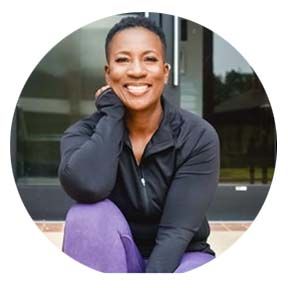
Tasha Edwards, MS, is an ACE Certified Group Fitness Instructor and a Board Certified Health and Wellness Coach. Edwards teaches a number of modalities, from yoga and Pilates to Zumba and barre, and is focused on helping people reconnect to their power through movement.
ACE: What are some specific continuing education courses or areas of study that you believe health coaches and exercise professionals should focus on as they prepare for a more inclusive fitness industry? What do you see as the #1 career investment that professionals should make now to thrive in that future?
Tasha Edwards: Well, honestly, there isn’t a certification in the world that can prepare a professional for such if they have not chosen to do personal work on their biases, and that’s, unfortunately, the route that everyone is trying to take. I think a deep dive into really understanding diversity, equity and inclusion would be a great start. Taking classes from people who aren’t like you or teaching a class to a population that isn’t your norm are also great practices that go beyond reading more books and having more credentials. I don’t know if I have a #1 career investment, because it’s the personal level that people will want to invest in, to start being better humans first and not doing it just to help their career. We aren’t far enough into a place where people find value in it enough to have created something that I think will be the #1 thing to help them thrive.
ACE: What is the practical application of the knowledge they would gain from that education?
Tasha Edwards: Learning to identify personal bias. Learning to look at bodies beyond what we think we see physically. Learning to teach in a way that is open for interpretation for the person receiving the instruction. Learning to identify when our clients and students may be struggling with something that is beyond what we have previously thought of as “lazy” or “unmotivated” and getting them referred to the right professional. Learning how to help people feel successful, as opposed to only being focused on a “killer workout."
ACE: You have a broad base of knowledge and experience, including holding personal trainer and group fitness instructor certifications and being a board-certified health and wellness coach. Are there any other career investments that health coaches and exercise professionals should make to set themselves up for long-term success, whether that’s other continuing education courses, equipment investments or fitness-related experiences like trips or workshops?
Tasha Edwards: I think it depends on who your clientele is and what you want to accomplish. I found it helpful to be certified in some type of mindfulness training, as most of my clientele were classic “type A personalities.” I needed tools to help me slow down so that I could help them slow down. This information was also valuable in helping them connect to what we were doing and what they were doing in their everyday lives, as opposed to just checking off the box to say we worked out that day.
I think exercise professionals who are not health coaches should consider becoming one, as it gives an entirely new lens to how we help clients set themselves up for lasting change. I recommend attending fitness conferences like IDEA that give you a lot of access to a lot of amazing leaders in our field at one time. It allows you to experience cutting-edge information and equipment first-hand as a participant and helps you translate it for your specific population.
As for equipment investments, I think it depends on who you are training. I’ve always made it a point to have enough equipment to give me three to four ways to accomplish something. Learning to think this way helped me navigate crowded gyms with limited equipment so that my clients were still working hard and getting the best I had to offer. I am mindful of equipment that is not made for beginners or people with larger bodies. I want to think of things that make exercise as accessible as possible. I have a trunk full of tools so that if, in the moment, I can see something is not going to work, I can run to the car and grab something that will help the client be successful. That’s more about having the mindset to do so than it is to have some specific type of equipment.
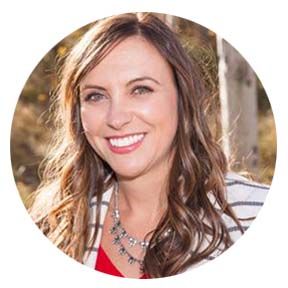
Amber Long, MEd, is the executive director of the Student Wellness Center at the University of Colorado, Denver, an ACE Certified Personal Trainer, Group Fitness Instructor, and Health Coach, and a continuing education provider and fitness business consultant.
ACE: What are some specific continuing education courses or areas of study that you believe health coaches and exercise professionals should focus on as they prepare to work with the next generation of clients in terms of how they view physical activity and nutrition? What do you see as the #1 career investment that professionals should make now to thrive in the future?
Amber Long: The landscape of health, well-being and fitness is shifting as new generations come into the market. Gen Z has been interested in health and wellness from a young age. They endured a pandemic at a transitional time in life and have witnessed an increase in mental health challenges in our society, and possibly even experienced those challenges themselves. They appreciate and understand the bigger picture of well-being and the related conditions and environments that support or deter positive health outcomes. They look to health and fitness pros to help them simplify the bulk of competing information found online.
I think health and exercise professionals preparing to work with future generations would benefit from investing in training and education related to exercise psychology, coaching or leadership. As the fitness industry continues to adapt and expand to reach more people, we will need to meet people where they are on their fitness journey and understand their unique needs, motivations and desires. A deeper knowledge of exercise psychology will allow fitness pros to have the skills to make sure their subject matter expertise in exercise science and nutrition is delivered in a relatable and tailored way for the populations they serve. Additionally, we know that exercise is medicine, and more people are looking to exercise to manage not just physical health, but also mental health concerns or to maintain a positive mental and emotional state.
ACE: What is the practical application of the knowledge they would gain from that education?
Amber Long: Investing in development opportunities related to exercise psychology and coaching provides a deeper knowledge about how and why people act the way they do. Coaching expands knowledge, awareness and appreciation for individual and diverse lived experiences in relation to health and exercise. This matters in the context of fitness because movement and nutrition are very personal habits linked to knowledge, beliefs and abilities. These habits also directly influence the way a person feels, and how they feel about themselves. A coaching framework, applied to fitness, enables a professional to learn skills that will help them maintain a curiosity about working with people and really understanding their unique strengths, fears, triumphs and roadblocks to maintaining healthy habits. This understanding forges the way to building meaningful rapport, which will help the client feel supported in the highs and lows of the journey of health and well-being.
ACE: Considering your broad base of experience and education, are there any other career investments that health coaches and exercise professionals should make to set themselves up for long-term success, whether that’s other continuing education courses, equipment investments or fitness-related experiences like trips or workshops?
Amber Long: From a long-term perspective, I think it’s always a good idea to continue to expand your knowledge in exercise science, special population considerations and new trends. I expect those trends to shift rapidly as AI, biohealth and recovery strategies become popular in helping the population navigate the current world.
Another thing that can help health coaches and exercise professionals evolve in their career is to maintain curiosity about themselves through personal assessments like Strengths Finders, True Colors or Myers-Briggs. These tools can provide a deeper understanding of oneself, to better understand how to work with others. I have completed a variety of these workshops and each time I find myself learning more about how I can leverage my strengths, and I have also become more aware of the strengths of my clients and employees. People tend to feel most comfortable and successful when they can utilize their strengths. This can be a powerful tool in helping a client adopt and maintain an exercise habit.
Finally, I encourage leadership training in any form because I believe that the field of health and fitness requires us all to be leaders, at every level. Additionally, leadership training can provide strategies to apply personal strengths and improve weaknesses, communicate effectively and lead others toward a common goal. Professionals can build a strong base with subject matter expertise in their given role. Leadership training can expand upon that base and prepare you for future career advancement.
A Personal Reflection to Better Align Your Career Investments With Your Values
Chris Gagliardi, MS, ACE Scientific Education Content Manager, holds all four ACE Certifications and is a Board Certified Health and Wellness Coach. Here, he offers a personal reflection exercise that you can use to identify the best career investments you can make to further your career in the always-evolving health and fitness industry.
This reflection is similar to what you might do with a client working on a health-related behavior change. When replying to the questions below, consider things like continuing education, networking, equipment needs and other investments. One thing that can truly help to set you apart from others is to have a plan (product goal) and decide on specific action steps (process goals) you can take to move closer to where you want to be.
Gagliardi explains: “A friend of mine once told me that ‘Hope is not a plan.’ I had mentioned the idea of going back to school and my friend then proceeded to ask me specific questions to help me determine what I was wanting to achieve by doing so. At first, my friend’s questioning of my dreams did not feel supportive, but later in life I realized that they had my best interests in mind and wanted to make sure my vision for the future had a SMART goal of sorts attached to it.”
When it comes to health coaches and exercise professionals investing in their long-term success, it is crucial to think about where you want to be and to understand what it takes to get there. If for example, you see yourself running a successful online coaching business in the future, consider what skills, equipment and training you might need to do it well. While you can’t predict the future, you can set a specific target to reach for and take steps to keep you headed in the right direction.
Step 1: Reflect on where you are currently as a professional?
- What is going well?
- What could be going better?
- What is within your control?
- What is not in your control?
Step 2: Reflect on what the future holds for you.
- Where do you see yourself in three to five years?
- What is the most ideal version of your future self that you can imagine?
- What services do you plan to offer in the future and how do you plan on delivering them?
Step 3: Answer the following questions to set yourself on the right track.
- What can you start doing today to move closer to your ideal future self?
- How will you know if you are on the right track with becoming the best version of your future self?
Gagliardi also offers some unique continuing education options that may not be on your radar in terms of courses or topics to research:
- Leadership
- Public speaking
- Recognizing and responding to medical emergencies in a virtual environment
- Suicide-prevention training
- Technology training specific to any technology you plan to start using
- Attending tradeshows and workshops
- Connecting with other business owners
- Communication and rapport building
- Financial literacy (budgeting, accounting)
As is the case with clients who are focused on health-related behavior change, our personal goals and vision for the future can change, which means you may need to reassess to determine a new baseline or starting point from which new next steps can be established. Reflecting is a useful too that can be used as often as needed. It is important to find a balance between reflecting and taking action. Being in a constant state of reflection may become a barrier to moving forward, so having planned time for reassessment can be helpful.
Also, constantly reassessing and changing your goals and your action steps can make it hard to know what is and isn’t working. This is where the last question in step 3 comes in handy: “How will you know if you are on the right track?” Checking in on your progress is important to make sure you are on the right track. It may be helpful to use this exercise after each time a new milestone or long-term goal is reached to determine if you are still headed in the right direction.
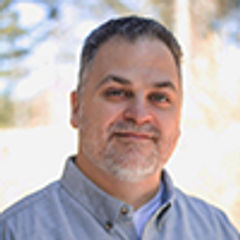




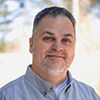 by
by 